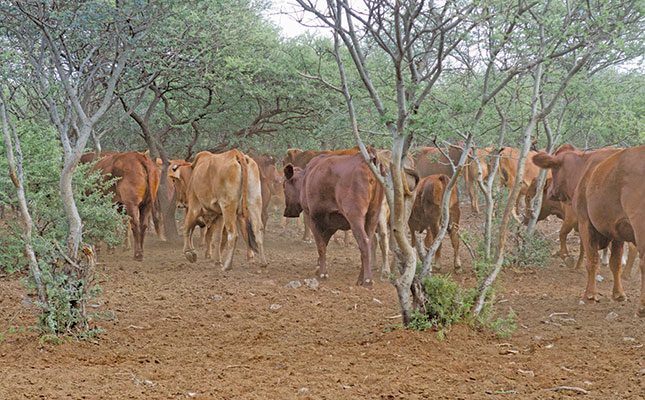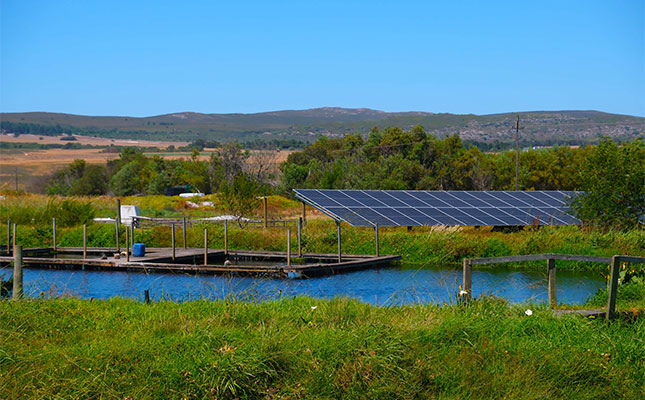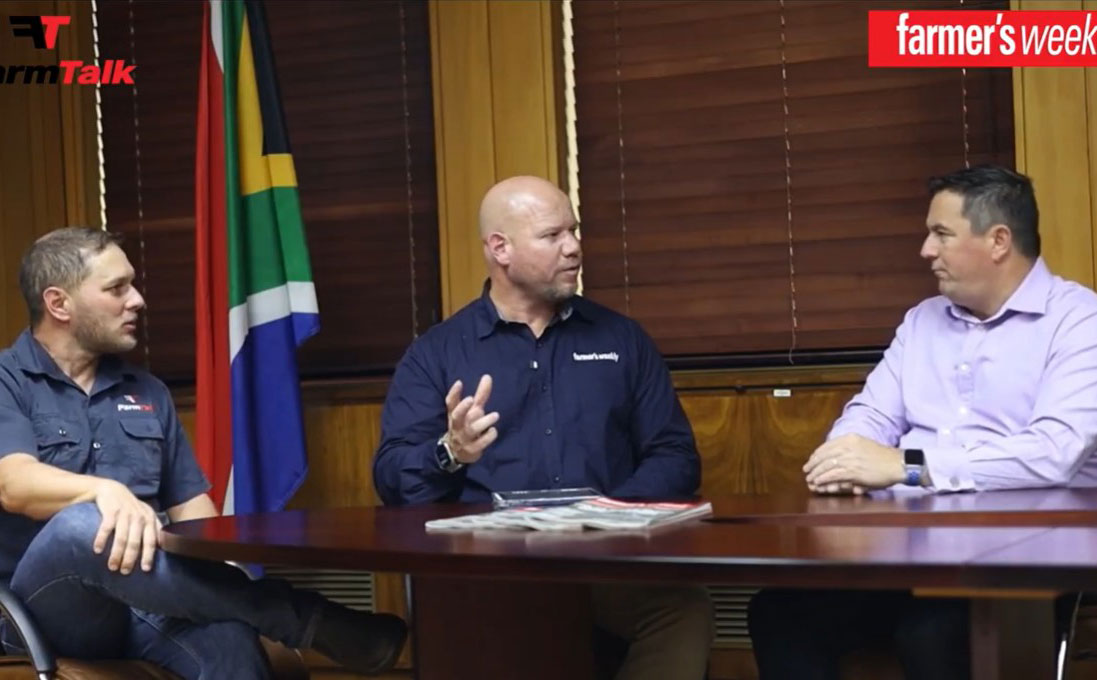
In a media statement, RMIS CEO Dewald Olivier said the Polokwane shipment, which was “falsely labelled as ‘Butanol’”, was successfully intercepted at the airport and transported under police escort to the transboundary animal diseases lab at the ARC-Onderstepoort Veterinary Research facility for testing.
He added that the vaccines contain FMD serotypes O and A, not present in South Africa, which could spark outbreaks for which local animals have no immunity, threatening producers, exports, and national food security.
READ SA’s national herd to be vaccinated against FMD
“This case has now been handed over to the State Security Agency and is under investigation as a potential act of terrorism,” Olivier said.
Speaking to Farmer’s Weekly, Olivier said that despite the interception of the consignments, RMIS was not aware of any confirmed use of illegal vaccines, but urged anyone with information to come forward.
He warned that knowingly importing a vaccine that introduces a foreign FMD strain could violate South Africa’s antiterrorism laws if done with intent to harm, carrying penalties of up to life imprisonment.
“RMIS is the only body that works directly with government on vaccine issues to prevent breaches of protocol and also facilitated vaccine procurement for the [Milk Producers’ Organisation],” he said.
Milk industry raised the alarm
Milk South Africa (Milk SA) initially raised the alarm last week, following unconfirmed reports that some South African livestock farmers were importing and using a Kenyan-made FMD vaccine.
The organisation said in a statement that while it understood the desperation caused by the current FMD outbreak, it cannot condone the illegal importation of any unregistered veterinary medicine.
READ Weak economy, uncertainty, fewer producers driving global dairy prices
Speaking to Farmer’s Weekly, Dr Mark Chimes, veterinary adviser and manager of Milk SA’s animal health and welfare programme, said that although no cases of use have been confirmed, there are growing reports of the Kenyan vaccine being smuggled into the country.
He welcomed government’s decision to vaccinate South Africa’s national herd, but warned that new vaccine supplies will only become available in about two months’ time: “Until then, the country faces severe supply constraints, leaving farmers in a difficult and desperate position.
Uncertainty over rollout strategy
“It is unclear what the plan will be for the next two months. A lot needs to happen, and authorities must also look at the rule that requires uninfected animals to be quarantined once they are vaccinated. That should change; we cannot quarantine the whole country.”
Chimes added that government should avoid vaccinating uninfected animals in low-risk areas in the early stages so they can remain part of the value chain, and called for clear guidance on the new vaccination protocol.
He expressed strong concern about the Kenyan vaccine specifically, saying it is not trusted locally, and there are questions about the quality control of its production.
“While we understand that farmers are very upset, the Kenyan vaccine is not the best option. It could compromise biosecurity and even introduce new strains of FMD into the country,” he said.
He added that the use of any unregistered vaccine is “highly irresponsible”.
Chimes has prepared a factsheet outlining the risks of using the Kenyan vaccine, which is being distributed through the Milk Producers’ Organisation and the Ruminant Veterinary Association of South Africa.
Strict rules protect against risky FMD vaccines
Under South African law, importing any veterinary medicine requires strict permits and approvals.
These include a veterinary import permit, registration or exemption under the Fertilizers, Farm Feeds, Seeds and Remedies Act (No. 36 of 1947), and, in the case of unregistered scheduled medicines, a Section 21 application to the South African Health Products Regulatory Authority.
Chimes said these safeguards exist because vaccines must match local virus strains and comply with international safety standards.
“The current water-based vaccine imported from the Botswana Veterinary Institute is not registered in South Africa but imported under a special permit. It is a short-acting vaccine requiring vaccination every three months.
“An oil-based vaccine from [Türkiye] is currently undergoing tests against the South African FMD virus strains, and the manufacturers have submitted their application for a permit to [export] the vaccine [to South Africa]. This is a longer-acting vaccine and only requires animals to be vaccinated every six to 12 months [depending on what approval they are granted],” he said in a statement.
He also explained that South Africa’s FMD outbreaks are caused mainly by the SAT1, SAT2, and SAT3 strains.
“The most common strains causing outbreaks in South Africa currently are SAT2 and SAT1. The outbreak in the Eastern Cape was caused by the SAT3 strain. Infection, or vaccination, with one serotype does not confer immunity against the other serotypes.”
Vaccine strains complicate disease control
He added that the Kenyan vaccine, manufactured by the Kenya Veterinary Vaccines Production Institute and marketed as Fotivax, contains strains A, O, SAT1, and SAT2.
“Because strains A and O do not occur in South Africa, any animals testing positive for these antibodies could be flagged as illegally vaccinated. Fotivax is also not a DIVA [differentiation of infected from vaccinated animals] vaccine, meaning it cannot distinguish between vaccinated and infected animals during testing.”
He said a real danger exists that animals that are vaccinated with the Kenyan vaccine will test positive for the A and O strains and the lab will not be able to tell whether it is the result of the vaccine or an active infection.
“Should a herd test positive for an A or O strain, it can act as proof that the herd was vaccinated illegally, and such a farmer may face prosecution.
“If antibodies of a new strain of FMD should be detected in a herd in South Africa, rapid slaughter of the whole herd would be the method of choice to contain the spread before it takes hold. The financial consequences for the farmer and the livestock industry, in such a case, would be severe. Farmers should not risk it,” he added.
State stresses protocol
Government has also issued a firm warning. National Department of Agriculture (the department) spokesperson Joylene van Wyk said illegal vaccine imports are a major biosecurity breach and a criminal offence.
“Vaccines must be transported under strict cold-chain conditions and cannot be supplied by any manufacturer without written approval from the importing country,” she added.
Van Wyk explained that introducing a mismatched vaccine strain could have “catastrophic consequences” for South Africa’s national herd.
She said South Africa’s official vaccination programme is continuing in controlled areas with approved vaccines matched to local strains.
A locally produced vaccine is expected in March or April 2026, once agreements between the department, Treasury, the Agricultural Research Council, and partners are finalised, she added.
Get trusted farming news from Farmers Weekly in Google Top Stories.
➕ Add Farmers Weekly to Google ✔ Takes 10 seconds · ✔ Remove anytime









